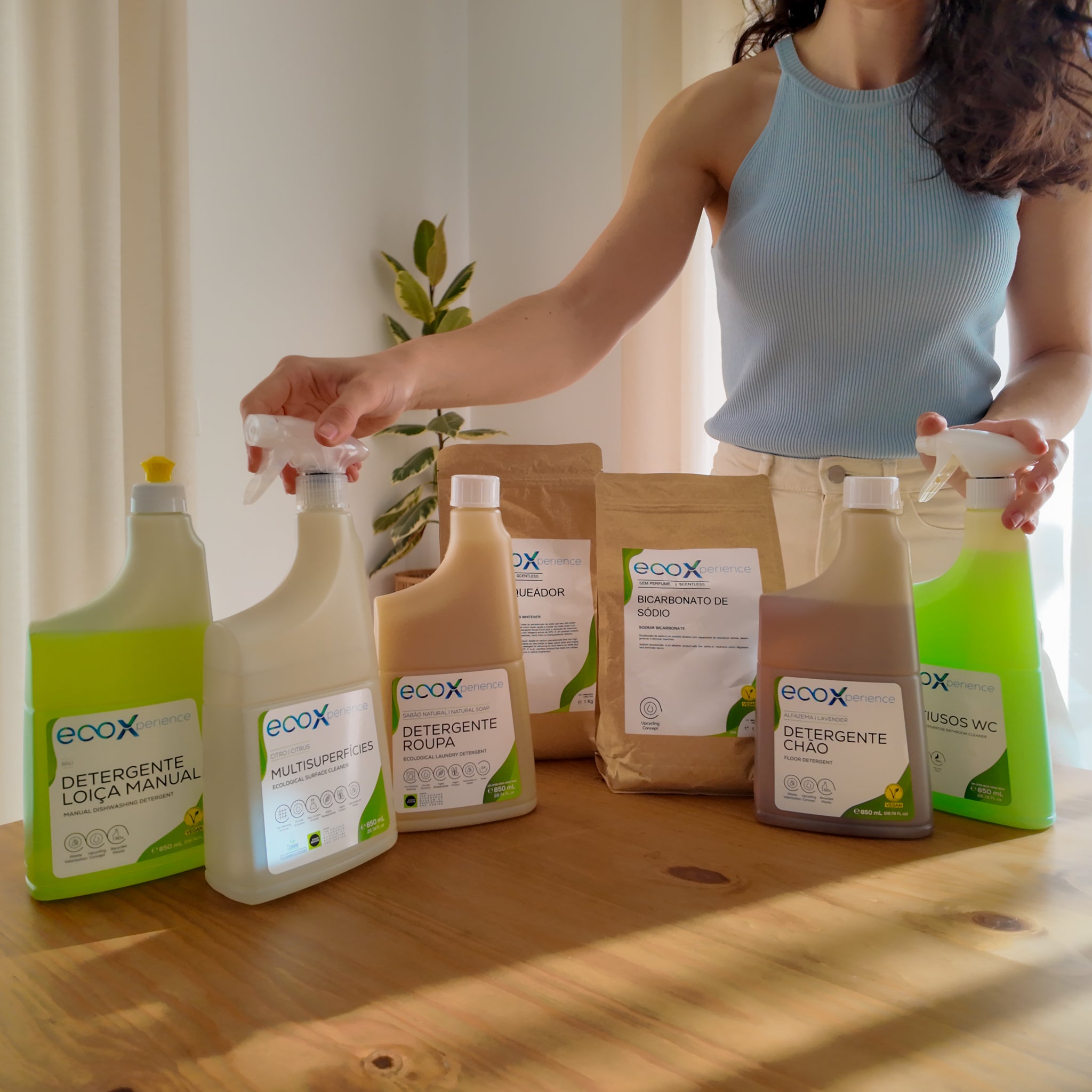
How to save at home? We give you 7 ideas
From water to electricity, food, gas and many other daily expenses, it is possible to reduce spending with small gestures that are also more sustainable for our planet.
According to Pordata , the household savings rate was 14.8% in 1995 and, in 2019, it was 7.2%.
But how can you save money at home? We’ll give you some ideas that you can put into practice after reading this article.
7 ideas to help you save money at home
Sometimes, managing a family or even individual budget is not an easy task. If you don't know how to save on the smallest details, you're on the right page to find out.
And remember: by saving you not only help your wallet, but also the environment.
Control your income
To get an idea of what you spend per day or month, write down all your expenses (for example, you can write them down by category: house, car, etc.) so you can define priorities: separate purchases that are important from those that are considered unnecessary expenses.
This way you will know what your fixed expenses are, what your monthly savings were in variables and in which areas you can still reduce costs further.
Save on water
Did you know that during a 5-minute shower with the tap running you can use around 60 litres? This figure is given by EPAL, which offers some tips for saving water, such as opting for quick showers and turning off the tap while you soap yourself.
This rule applies to brushing your teeth as well: while brushing your teeth you can keep the tap closed.
Before taking a shower, you can use the cold water to water your plants or even to flush the toilet. You can also use the water from washing fruits and vegetables to water your plants.
At this point, rainwater also helps with watering, flushing toilets and even ironing clothes.
You can reduce your electricity bill! How?
How many times do you leave a room and forget to turn off the lights? Or even leave some appliances on standby? This happens sometimes, but turning off the lights in the rooms you’re not in and the appliances you’re not using at the time can help you save money.
When you need to buy a new appliance, opt for those with Class A ratings, which means they are more energy efficient. According to the Official Journal of the European Union , “Energy labelling enables customers to make informed choices based on the energy consumption of energy-related products.”
In addition to household appliances, you can also opt for energy-saving light bulbs. Choosing windows or doors with good insulation also reduces the need for fans in the summer and heaters in the winter.
Photovoltaic panels are also an option for saving electricity: according to the Energy Portal, these materials generate “free and clean electricity during the day, which will cover part of your energy needs within the home.
By having this extra source of electricity, consumption during the day will offset the need to use energy from the grid.” In addition, it is a way of producing renewable energy.
Make a meal list!
You can make a weekly meal list so that you have a better idea of the products you will need to cook. Also write down the quantities needed of each product according to the number of meals you will make (for example: cabbage - 2 dinners).
Don't forget to check what you already have at home before you go shopping. This way, when you go to a grocery store or supermarket, only buy what you really need (an important tip: buy in bulk), saving money, having fresh food in your daily diet and avoiding food waste .
PS: Promotions also help with this task!
You can take meals to work in a traditional lunch box
Bringing your own meals to work means you don't have to spend money going to restaurants or bakeries (of course it's also good to go and have different moments in our routine) and it helps you have a more balanced diet.
If you choose the meal list, you will have an even better idea of what you will eat during the week.
Avoid impulse purchases
Lists are a good option for these types of situations because they are made in a thoughtful, rational and logical way. Before you go to the supermarket or shopping centre, think about what you really need to buy and, when you are there, try to avoid impulse buying by asking yourself “Do I really need this?”
Set a monthly amount
How much money would you like and are able to save each month, taking into account your income? If you have already thought of a number, you can transfer it to your savings account at the beginning of each month.
Why? Because this way you can more easily manage your accounts with the real money you can spend and you don't have to rely on what you want to save, because it is already saved in another account.
And what about cleaning?
You've probably already bought several cloths for cleaning, but have you ever thought that you can reuse clothes that are no longer in good condition and make small cloths for the same purpose?
Catarina Barreiros helps with this issue and reveals “I remember the thousands of trees that I helped to save, the thousands of liters of water that were not wasted and the amount of unused clothes that did not take up space in landfill.”
You should also only wash clothes and dishes when you have enough to fill the machines. In general, you should use cold water for cleaning, whether for clothes or floors. EcoX ecological detergents are ideal for this cold cleaning and are also 100% biodegradable.
After washing clothes or dishes, avoid drying programs: you can let them dry in the open air.
The apps that help you: how to save more?
If you can't have a fully organized agenda and prefer to have something digital that organizes all the information more quickly, we give you some apps:
- Money Lover
- Boonzi
- Toshl Finance
- Mobills
- Money Care
- Moneyboard
- Monefy
- Tax status
Have you already put any of these ideas into practice?
Author: Daniela Matos







